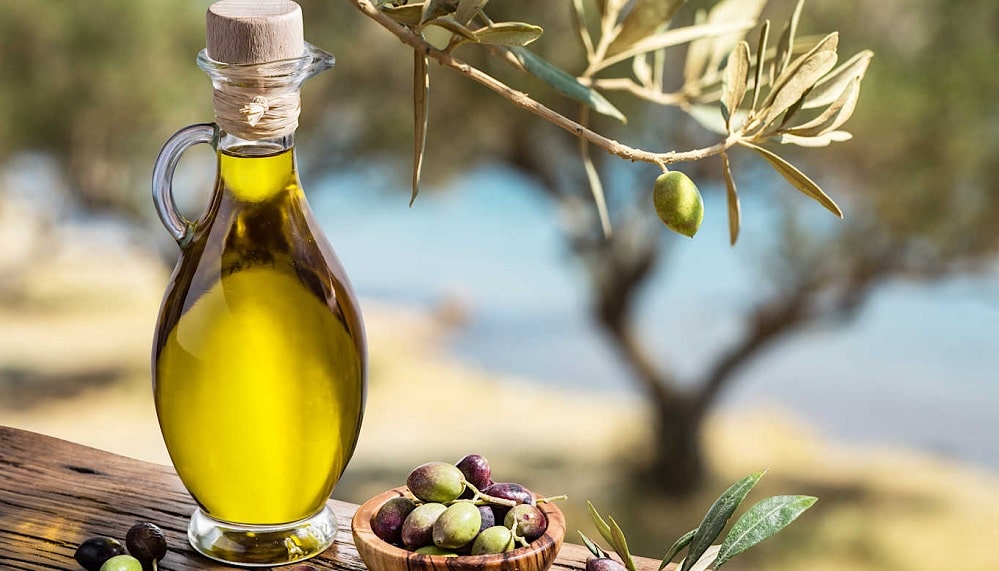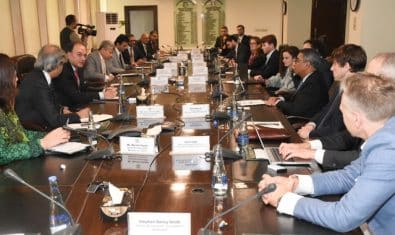In 2006, Pakistan entered into a Debt-Swap Agreement with the Italian government and decided to spend $100 million owed to Italy on development projects across Pakistan. One of these projects was the Promotion of Olive Cultivation for Economic Development and Poverty Alleviation.
After the devolution of the Pakistan Oil and Development Board (PODB) in 2012, the project worth Rs. 3.82 billion came under Pakistan Agriculture Research Council (PARC) and was completed in 2012.
Later, the government launched a five-year Olive Cultivation Project in 2015 aimed to plant 2 million saplings on 15,000 acres.
Another five-year project named Olive Valley Programme was launched next year to plant 1 million plants on 8,000 acres which was completed last year.
“All of these projects were extremely successful in R&D and initiating the commercial cultivation of olive in Pakistan” stated Dr Muhammad Ramzan, Deputy Project Director Center of Excellence Olive Research and Training (CEFORT) in Chakwal.
The government has identified 10 million acres of land suitable for olive cultivation across the country but primarily in the Pothohar region.
“We have planted almost 5 million plants on 42,000 acres in 66 districts. We are training ‘master trainers’ from other provinces and have provided hundreds of thousands of plants at subsidized prices”, he added.
He said that the ongoing project worth Rs. 7 billion is led by Pakistan Agriculture Research Council (PARC) with the aim to carry out olive plantation on 75,000 acres. These are marginalized lands, not highly suitable for agricultural purposes in general which means if government successfully develops the sector, it can uplift a whole region and build new industries.
Pakistan’s annual edible oil requirement is 4.1 MMT out of which only nearly 89 percent was imported during the last fiscal year at a cost of $3.6 billion. Despite government’s efforts, the domestic acceptability of olive is low with only a 0.3 percent ($11 million) share in edible oil imports.
Domestic cuisines require high heating and deep-frying for which olive oil is not the ideal choice, especially with the cheaper and readily available alternatives like palm oil. Additionally, olive is also considered a luxury for the health-conscious demographic with high purchasing power, again not ideal for the Pakistani market.
While olive oil may not provide for import substitution in our large edible oil import bill, it does represent an excellent export opportunity. Olive is being grown in the Mediterranean region for thousands of years since the Greeks and then the Romans adopted it and initiated its trade across their empire.
Crowns of its branches used to be given to Olympic athletes. In recent times, olives and its products have gained international importance due to their unique properties.
Global Olive Oil Market stands at $14.2 billion and is projected to reach $18.6 billion by 2030. International olive consumption is outgrowing its production for the last three consecutive crop cycles. This increasing trend in demand is linked to the proven health benefits of olives over other oils and the rising popularity of Mediterranean cuisines.
Pakistan Business Council (PBC) conducted a study in March 2022 to assess the prospects of the olive sector in Pakistan. It concluded that government has been carrying out this supply-driven strategy for years, but it also needs to work on the demand side and identify the value-added olive products and targeted countries for local industry.
“Pakistan’s olive products meet international standards and fresh oil like this is often sold for €20-30 per litre” commented Dr Ramzan. He explained that their institute is constantly working with the private sector in ensuring the pricing and marketing of domestic olive produce.
The current challenges in the growth of the sector include the lack of orchard management services, the absence of laboratories and testing facilities and insufficient infrastructure for cheaper packaging & processing.
The locally produced olive oil is reportedly of far superior quality and is being sold at a premium price. Moreover, there is a lack of sufficient supply as the project is still in the initial stages of commercial production. Due to these reasons, local retail and wholesale chains are not selling it at the moment.
The government needs to build a demand-driven strategy and bring the private sector to study the development of products and markets, especially in the Middle East. A number of players within the food sector have significant market expertise and can assist the government.
Current olive orchards and further suitable lands are located in remote districts where there is a big gap in providing technical assistance and field guidance. The government must expedite the development of laboratories and related certification systems in order to build exports.






















